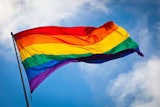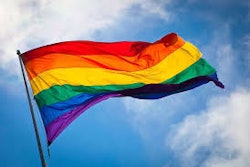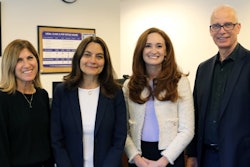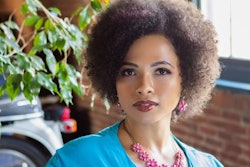There are more than 200 U.S. colleges and universities that have explicit policies discriminatory toward GLBT (gay, lesbian, bisexual and transgender) students, according to Soulforce Q. Since 2006, this young adult division of Soulforce, a social justice organization seeking to end political and religious oppression of GLBT people through nonviolent resistance, has staged Equality Ride. A group of young adults between the ages of 18 to 28 — gay, transgender and straight — take a bus trip to visit some of these institutions in the hopes of changing both policies and perceptions.
“I would hope that we are able to stand on a campus and maybe for the first time be an affirming voice,” said codirector Katie Higgins. On the previous Equality Rides, she has repeatedly heard from students that she is the first openly lesbian person they’ve ever met. “Conversations are happening on these campuses that have never happened before.
“Our goal is to talk to our peers and try to find a way where … GLBT students can go to school without fear of retribution.”
They have witnessed changes ranging from sentiments and attitudes to actual policy revision. Some schools, although not many, have softened some of the anti-GLBT policies. One example is that Samford University used to have certain specific condemnations of homosexuals in their written policies. Now the policies are the same for gays and straights. Of course, those policies pretty much tell everyone to refrain from sexual activity, but it doesn’t single out gays and specifically denounce them.
This year’s route takes its 17 participants, who were carefully chosen from approximately 100 applicants, to 15 schools throughout the South from Oct. 2 to Nov. 13. The complete Equality Ride route and dates of specific visits can be found at www.equalityride.org along with details about the riders and other information about the overall mission.
In the past, Equality Ride also visited military institutions, such as the Naval Academy, but has shifted the focus to mostly faith-based schools, such as Liberty University, Heritage Christian University and Dallas Baptist University. Also included in this ride are HBCUs Morehouse College and Spelman College, which non-discrimination policies, but still have been known to have climates of homophobia and harassment.
“Just because a school doesn’t have a policy on their books doesn’t mean that it is a welcoming atmosphere,” said Higgins. “We are working with students at Morehouse and we have a great day planned. They are welcoming us onto the campus.
“We’re going to learn about what is happening on those campuses. With Morehouse and Spelman being pillars of the HBCU community, they will in turn be able to lead the way for other HBCUs to become more inclusive.”
Outreach began to the colleges and universities months ago — ranging from official requests to administration to come on campus, to behind the scenes networking with students via the Internet.
Some schools ignore them, some write back and welcome them to campus and set an itinerary for the visit and some tell them to stay away. “We ask the students to question their ideas of sin and love and if their college can possibly be a place where all students can be accepted,” Higgins said.
Since 2006, the Equality Ride has visited 50 schools, hosting public forums, participating in panel discussions and taking part in worship services and Bible studies. Their goal is to foster conversation and inspire the students, faculty and administrators to welcome GLBT students, rather than condemning and harassing them.
At those schools that don’t allow them on campus, they stand just off the grounds. Often students come and speak with them. On some occasions, they’ve been arrested for civil disobedience.
“There are GLBT students on all of these campuses,” Higgins said. “We have to do more than go on a campus and demand equality. We want students to be able to grow into healthy human beings.”
Email the editor: [email protected]
Click here to post and read comments
© Copyright 2005 by DiverseEducation.com


















